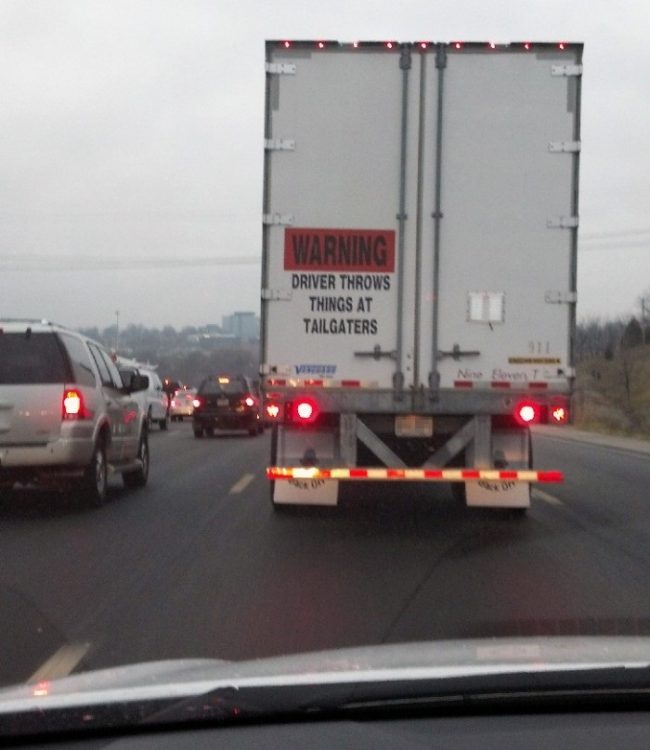Drivers Trust Others
Invalid input parameters. Yes No. required field required field. In other cases, you might need to get the latest version of a hardware driver if the current one is causing problems with your computer. If you do want to update your drivers, skip the driver-updating utilities. We can’t repeat that enough. Go right to the source for your hardware drivers.
When it comes to the issue of employee performance in an organisation creating a sense of trust is one of the key factors to be considered. Trust forms the basis of all relationships and interactions. It is just as important in professional relationships as it is in personal ones.
A company that is able to create a strong sense of trust in the workplace is better able to weather the storms throw up by the competition and have a clearer vision of what the company stands for.

Why Is Trust Important In The Workplace?
Successful businesses are built on relationships. Relationships between employers and employees, staff and customers, internal stakeholders and external stakeholders. At the foundation of all relationships is trust. There may be times where some people may not see eye to eye, but if people treat each other fairly and can get their ideas across without feeling belittled of discriminated against, then trust can be build within the workplace. You don’t want it to resort to the use of an employment lawyer, but if it becomes too much where they feel victimised, then this may have to be an option. Without each party trusting one another the ability to come to an agreement or consensus on an issue is always going to be compromised.
If a workplace is able to foster a strong sense of trust within their organisation they can see a number of benefits including:
- Increased productivity amonst staff
- Improved morale amongst employees and staff
- The ability to work more effectively as a team, rather than individuals
- Reduce the time to make and discuss key issues as each individual trusts in the judgement and expertise of their colleagues.
Drivers Trust Others Help
How To Build Trust In The Workplace?
Drivers Trust Others Support
Trust is built through actions not words. As a Manager or Leader in an organisation you can’t just say you “trust” a particular employee or team, you need to show that you do through the actions you take on a daily basis.
In addition to the trust you show to your team you must also enable trust to flow between employees, teams and departments. You can help build trust in the workplace by:
- Empowering staff to “own” their day to day responsibilities.
- Allowing teams to make decisions and put together their own proposals that they believe benefit the business.
- Being open and transparent on key decisions/ changes to business process or procedure.
- Refrain from treating anyone or any team more favorably than another. Call out success when it is warranted by don’t anyways focus. the attention on one particular person or team.
It's the straightforward task management tool for teams who want to get things done!
Finally you should understand your employees expectations of you. It is easy for a lack of trust to develop when an employee feels as if an employer has unrealistic expectations of them and they don’t believe they are ever able to achieve the objectives set for them.Drivers Trust Others Meaning
How To Rebuilt Trust In The Workplace?
Trust between people within an organisation can be lost within an instance. Rebuilding that trust isn’t always an easy process. What this really highlights is how important it is to maintain trust with one another once you have it. If however, you find yourself in a situation where you have lost the trust of your employees how do you regain it?


The most important thing to do in order to rebuild trust is take ownership of the mistake or issue. You need to clearly articulate that you understand why your employees have lost trust in you and acknowledge the mistakes you made.
To make sure this is understood by everyone involved you should communicate clearly and openly with everyone and preferably in person. Essentially you need to take responsibility for mistakes made.
After you have got past the acknowledgement phase you need to show how you are going to rectify the situation and put in processes to ensure it won’t happen again in the future. Some common ways to assist with this process are:
- Creating an open door policy where staff can communicate with you about their concerns without any fear of judgement or retribution.
- Taking proactive action to involve yourself in understanding the issues that led up to the loss of trust between you and your team.
- Seek the counsel or other managers or leaders in the business and have them mediate between the various affected parties.
- Show that you have changed your management or leadership style in wake of these developments. Action always speaks lower than words.
Finally, depending on the level of trust loss or the underlying issue you need to acknowledge that some staff may feel angry or aggreved for some period of time. You may not just be able to say sorry and get straight back to where you were before. Don’t rush the process, give your staff and team time and if you are sincere in your approach eventually you will regain their trust.
It's the straightforward task management tool for teams who want to get things done!

This is an essay. It contains the advice or opinions of one or more Wikipedia contributors. This page is not an encyclopedia article, nor is it one of Wikipedia's policies or guidelines, as it has not been thoroughly vetted by the community. Some essays represent widespread norms; others only represent minority viewpoints. |
Wikipedia is written, governed and overseen by the collective of the community. There are a very small number of authorities which are generally accepted as governing the collective itself:
- The Wikimedia Foundation
- The arbitration committee
The problem[edit]
Only a small number of the individual disputes that rage on Wikipedia even make it as far as the arbitration committee, and in practice, the first two components rarely intervene directly. This leaves people with a problem: The community at large, or at least the active and interested portion of it, takes most of the decisions. Sometimes this is one admin banning a disruptive editor, deleting an article, etc., and other times it is a group of them reaching agreement that a course of action should be taken. When a person or party feels injured by the collective's decision, they must turn somewhere. They must find a group of people they trust to reach the decision they want. But all they have is the same collective that made the decision in the first place.
Solution(s)[edit]
A good solution to that is to put together another committee of users that is more likely to give the decisions they think are correct, and make sure that the members of the collective reach a state where they do not trust others to reach good decisions. Making a user choosewhether they're pro or con against a topic can reveal statistics. Those statistics can show if there really is biased and uncalled for change or edit in topics. Another way of tackling corrupt editors would be to analyze what they are changing. Therefore you can make another committee that focuses on keeping information correct. This newly found committee can check both the editors and the community form spreading useless or invaluable information.
The problem with the solution(s)[edit]
Such committees, panels, juries, reviews, boards and other bureaucratic creatures encourage distrust of members of the community not on them. They institutionalise the notion that the vast bulk of editors and admins are making decisions that do not matter, because the only ones that do are those taken by the more-powerful body that is far smaller in number. Systems of collective government that do not trust others to make decisions are oligarchies and, if allowed to grow, are woefully at odds with a collaborative venture.
Trust others, and others will come to trust you. Do not trust others, and you fear demons round every corner. In the end, even the new committee will make a decision you don't like; and eventually, no one trusts anyone. The people appointed to the new committee have the possibility of not doing their task. This can lead to complete control on information pertaining to certain topics
See also[edit]
- The Ombudsmen Committee, particularly version 1.
- The Wikipedia:Devolution proposal, which actually centralises trust away from the collective.